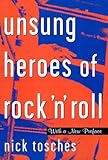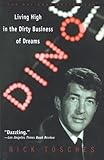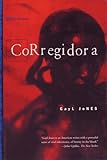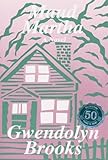I just reread Hellfire because Nick Tosches died in October and I needed to pay some kind of tribute. 2019 turned out to the year when I became a “music writer” above all else, and years ago Tosches, more than any author, inspired me to consider music as a literary subject in the first place. Over the course of his career, he wrote about opium dens, the mob, boxing, Las Vegas–and that doesn’t even include his fiction, which I resolve to read in 2020. Those novels are filled with devilry, literal and metaphorical, and have an uneven reputation. But he started by writing about music, first as a critic and essayist for early rock magazines like Creem and Crawdaddy, then as a biographer.
In Country (1974), Hellfire (1982), Unsung Heroes of Rock n Roll (1984), and Dino (1992), he wrote a sordid history of American pop culture stretching from blackface minstrelsy to the Rat Pack. 

 His research was always thorough (I believe he was the first person to identify the early-19th-century origin of the term “honky-tonk”) but ultimately secondary. His real interest was mythology. He described musicians as primordial forces borne from holler shacks, bereft steel towns, and Pentecostal villages, fated to carry earth-shaking messages and ultimately self-destruct.
His research was always thorough (I believe he was the first person to identify the early-19th-century origin of the term “honky-tonk”) but ultimately secondary. His real interest was mythology. He described musicians as primordial forces borne from holler shacks, bereft steel towns, and Pentecostal villages, fated to carry earth-shaking messages and ultimately self-destruct.
Hellfire is considered a biography of Jerry Lee Lewis, but it’s really more of a nonfiction-novel, right from the preface in which Tosches depicts the painkiller daydreams of Graceland-era Elvis. That’s the first of many, let’s say, unverifiable assertions and scenes, though others exhibit incredible archival work and original interviewing. The book is written in a mock-Biblical cadence that casts the creator of “Great Balls of Fire” as a flesh-and-blood venue for a cosmic battle between the forces of sin and grace. Here is how Tosches narrates the most cliched rock-bio requisite, infidelity:
Women had thrown themselves on him for five years. Wherever he went, it seemed, cheap-perfumed thighs parted, lithe and yielding in the windblown reeds of Turtle Lake–had parted first to receive whatever scrap of garish, stinking fame and glory they might, then later to receive the grotesque wraith of that fame and that glory. Every time he disgorged himself in the mouth in the mouth of whoredom, he cursed all women for what they had to him shown themselves to be.
 Tosches was foremost a stylist: He seemed to choose new subjects and stories purely in order to make the same observations over and over again. He wanted to rub his readers’ faces in the mildewed underland beneath show-business glamour, and thus the entire American project. He insisted on the fundamental lasciviousness of intimate human behavior, no matter whose. And he saw everything–business, entertainment, seduction, literature–as work, as a racket, a word he often used. He was a cynic’s cynic, but also a true working-class voice in contemporary mainstream publishing. In interviews he described growing up in postwar Newark, cleaning his father’s bar in the mornings before school. He never went to college. In The Nick Tosches Reader, one of the liveliest collections in existence, he rattles off payment details about his assignments and publishing contracts. When he was cruising at full altitude (Dino, about Dean Martin, is the masterpiece), he was as inspired and fearless as any writer I know. He was well-suited to music in part because he had such incredible rhythm in his prose, and such nightclub crudeness in his worldview.
Tosches was foremost a stylist: He seemed to choose new subjects and stories purely in order to make the same observations over and over again. He wanted to rub his readers’ faces in the mildewed underland beneath show-business glamour, and thus the entire American project. He insisted on the fundamental lasciviousness of intimate human behavior, no matter whose. And he saw everything–business, entertainment, seduction, literature–as work, as a racket, a word he often used. He was a cynic’s cynic, but also a true working-class voice in contemporary mainstream publishing. In interviews he described growing up in postwar Newark, cleaning his father’s bar in the mornings before school. He never went to college. In The Nick Tosches Reader, one of the liveliest collections in existence, he rattles off payment details about his assignments and publishing contracts. When he was cruising at full altitude (Dino, about Dean Martin, is the masterpiece), he was as inspired and fearless as any writer I know. He was well-suited to music in part because he had such incredible rhythm in his prose, and such nightclub crudeness in his worldview.



 The best books I read in 2019 all reminded me in some way of Nick Tosches. There was the psychological intimacy and pointillist structure of Penelope Fitzgerald’s Human Voices. The scope and obsessiveness of Taylor Branch’s America in the King Years trilogy. Gayl Jones‘’s Corregidora and Patrick White’s Riders in the Chariot had the same unflinching closeness to human cruelty and transcendence. Maud Martha, Gwendolyn Brooks’s only novel, and William Carlos Williams’s Pictures from Brueghel are both quasi-documentaries organized around patterns of human speech and interior thought. Even the lyrics of Purple Mountains, the record that turned out to be songwriter David Berman’s final testament, had Tosches’s barfly-magus sense of humor and musical history.
The best books I read in 2019 all reminded me in some way of Nick Tosches. There was the psychological intimacy and pointillist structure of Penelope Fitzgerald’s Human Voices. The scope and obsessiveness of Taylor Branch’s America in the King Years trilogy. Gayl Jones‘’s Corregidora and Patrick White’s Riders in the Chariot had the same unflinching closeness to human cruelty and transcendence. Maud Martha, Gwendolyn Brooks’s only novel, and William Carlos Williams’s Pictures from Brueghel are both quasi-documentaries organized around patterns of human speech and interior thought. Even the lyrics of Purple Mountains, the record that turned out to be songwriter David Berman’s final testament, had Tosches’s barfly-magus sense of humor and musical history.
Toni Morrison died this year too, of course, and it was Melville’s bicentennial, two good reminders of the fulminating, visionary branch of American literature. Nick Tosches fit right in there, even if he only associated with the type of people who don’t really fit in anywhere. I’ll miss him.
More from A Year in Reading 2019
Don’t miss: A Year in Reading 2018, 2017, 2016, 2015, 2014, 2013, 2012, 2011, 2010, 2009, 2008, 2007, 2006, 2005










